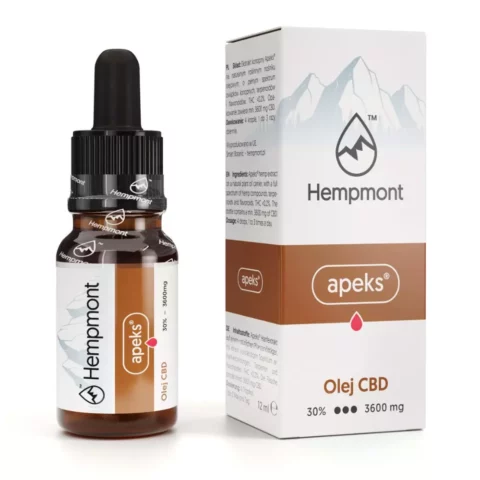
Multiple sclerosis (sclerosis multiplex, MS) is a chronic, inflammatory, autoimmune disorder of the central nervous system in which there is multifocal damage (demyelination and disintegration of axons) to the nervous tissue. The disease progresses in leaps and bounds, there are periods of remission followed by an exacerbation of the symptoms of the disease. How does this relate to cannabidiol? Well, scientists doing a whole lot of research on it have discovered that one of the properties of CBD is its ability for neuroprotection (neuroregeneration), so research has gone in this direction too. And their results are really promising. Will the proper use of CBD oils help multiple sclerosis patients? There is hope.
What is MS
- muscle weakness with paresis of the lower limbs,
- Charcot's triad (intentional tremor, nystagmus, speech disorder with scrambled speech),
- sensory disturbances in the form of paresthesia, hypersensitivity or hypersensitivity in the lower limbs and trunk,
- abolition of abdominal reflexes,
- extraocular inflammation of the optic nerve and concomitant visual disturbances (e.g. decreased acuity or double vision),
- Lehrmitte's sign - an unpleasant sensation of electricity running along the spine,
- Physiological dysfunction - impaired sphincter function, constipation, incontinence problems,
- abnormalities or abolition of the ability to swallow (known as dysphagia).
Conventional treatment of multiple sclerosis
Treatment of multiple sclerosis is a combination of pharmacology and physical rehabilitation. However, it is important to remember that it is an incurable disease and medication will not make it go away. Unfortunately, they also do not inhibit the demyelinating process. Their use is aimed at delaying and reducing the severity of the next flare and keeping the patient as stable as possible for as long as possible. Medications can also calm symptoms, relieve pain, counteract muscle spasticity, reduce tremor or aid bladder function.
Rehabilitation also has a huge role in the treatment of MS. Properly conducted physiotherapy combined with well-chosen physical stimuli can significantly affect the patient's physical condition and inhibit progressive motor limitations for a long time. It is important to be aware that, when suffering from MS, it is possible to participate in sports without any problems and, in fact, it is highly desirable to do so if your physical condition allows you to do so.
Alternative methods to support the healing process - CBD oils
The use of medical advances in the form of new-generation medicines does not conflict with the support of natural medicine. After all, we support ourselves on a daily basis with natural supplements, plant extracts and extracts to rebuild, for example, the immune or nervous systems. One example worth mentioning is Chinese medicine, which is celebrating real triumphs. Combining this with a healthy, balanced diet and physical exercise supports our organisms. Not surprisingly, many scientists are looking to nature for support for diseases such as MS.
And such possibilities for multiple sclerosis patients have been discovered in hemp seed, which is full of cannabinoids with many health-promoting properties. Chief among these is cannabidiol (CBD), which has special properties. For example, in unlike synthetic preparations, CBD oil has the ability to selectively affect spastic muscles so that MS patients are not exposed to sudden drops in muscle tone.
Cannabinoids found in CBD oils also have the ability to reduce the activity of protein structures called cytokines, which can result in the suppression of inflammatory responses.
The intake of CBD oils, it is worth mentioning here that long-term intake, as only such intake leads to saturation of the receptors with cannabidiol, allows them to act as antioxidants, which also helps to reduce inflammation.
Research also shows that CBD oils show analgesic properties, and this is of great importance for MS patients struggling with neuropathic pain. At the same time, cannabidiol stimulates the production of serotonin in the body, which (to put it in a nutshell) can increase the threshold of pain resistance and improve the quality of life of patients. CBD oil can also relieve stress, depression and anxiety. Overall, therefore, it improves the patient's wellbeing.
However, it should be remembered that if you wish to use CBD oils to support the treatment of multiple sclerosis, you should contact your general practitioner and coordinate this decision with him. And only purchase the cannabidiol itself from a reliable manufacturer.
Bibliography:
- Multiple Sclerosis via Wikipedia: https://pl.wikipedia.org/wiki/Stwardnienie_rozsiane
- "Modern symptomatic treatment in multiple sclerosis" https://journals.viamedica.pl/polski_przeglad_neurologiczny/article/viewFile/36912/26420
- "THC and CBD oral mucosal spray (Sativex®) for the treatment of spasticity associated with multiple sclerosis"; Jaume Sastre-Garriga, Carlos Vila, Stephen Clissold, Xavier Montalban (2011); https://pubmed.ncbi.nlm.nih.gov/21456949/
- "Cannabidiol provides long-term protection against the deleterious effects of inflammation in a viral model of multiple sclerosis: the role of A2A receptors"; M Mecha, A Feliú, P M Iñigo, L Mestre, F J Carrillo-Salinas, C Guaza (2013) https://pubmed.ncbi.nlm.nih.gov/23851307/
- "Meta-analysis of cannabis-based treatments for neuropathic and multiple sclerosis-related pain"; Michael Iskedjian, Basil Bereza, Allan Gordon, Karola Piwko, Thomas R. Einarson (2007) https://pubmed.ncbi.nlm.nih.gov/17257464/









